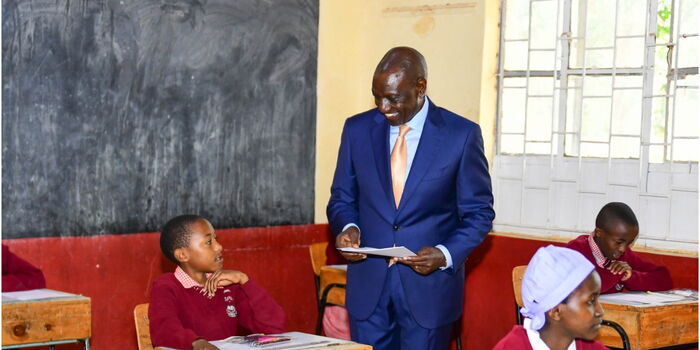Teachers Warn of Learning Disruptions as KNUT Criticizes Government Over Delayed Capitation
Teachers across the country have raised fresh concerns over continued delays in the release of capitation funds by the government, warning that the setbacks are seriously affecting learning in public schools.
They have accused the government of taking the education sector lightly and called for immediate action to resolve the funding crisis.
Speaking on the issue, Kenya National Union of Teachers (KNUT) Deputy Secretary General Hesbon Otieno expressed frustration over the lack of seriousness by the authorities.
“The government must stop playing games with the future of our children. Release the funds so learning can continue without interruption,” Otieno said firmly.
Otieno also pointed out that assessment fees, which were previously excluded from the national education budget, should now be included to help schools meet all their financial needs.
The union insists that the government has yet to fully address the funding gaps that have burdened schools for months, making it hard for them to operate smoothly and offer quality education.
Under the current arrangement, school capitation funds are supposed to be released in phases: 50% in the first term, 30% in the second term, and the remaining 20% in the third term.
This is based on an annual allocation of Ksh22,244 per student, which is intended solely for tuition expenses and does not cover meals, utilities, or other vital operational costs.
However, as of May 2025, many schools had still not received the full Ksh2,300 per student owed from the first term. This is despite previous promises that half of the total annual funds would be disbursed at the beginning of the year.
In a related concern, the Kenya Union of Post Primary Education Teachers (KUPPET) revealed that only Ksh4,000 per student had been released for the term—far below the expected Ksh8,000.
Schools were counting on receiving Ksh28 billion in total for the term, but so far, only Ksh14 billion has been released, placing significant strain on school management.
“Capitation is being released in small, inconsistent amounts,” observed KNUT Deputy Chairman Joseph Langat, underlining the challenges faced by school administrators.
In response to the growing outcry, the government announced in May the release of Ksh22 billion in capitation funds meant for the second term. According to Education Cabinet Secretary Julius Ogamba, the funds will go toward supporting all learners in public schools.
The distribution includes allocations for Free Primary Education, Free Day Junior Secondary, Special Needs Education, and Free Day Secondary School programs.
Despite this, headteachers and school principals remain concerned. Many say the funds are still not enough and that the delays have already disrupted teaching schedules and the academic calendar.
The Kenya Secondary Schools Heads Association (KESSHA) warned that if capitation funds are not released on time and in full, schools may be left with no option but to send learners home. Such a move would cause massive interruptions in the education system.
Although teachers have not yet declared a strike, unions are standing firm in ongoing negotiations with the government. KNUT is demanding a 60% salary increase and a 30% raise in allowances, emphasizing that the teaching profession cannot be sustained under the current financial conditions.
Join Gen Z New WhatsApp Channel To Stay Updated On time https://whatsapp.com/channel/0029VaWT5gSGufImU8R0DO30


